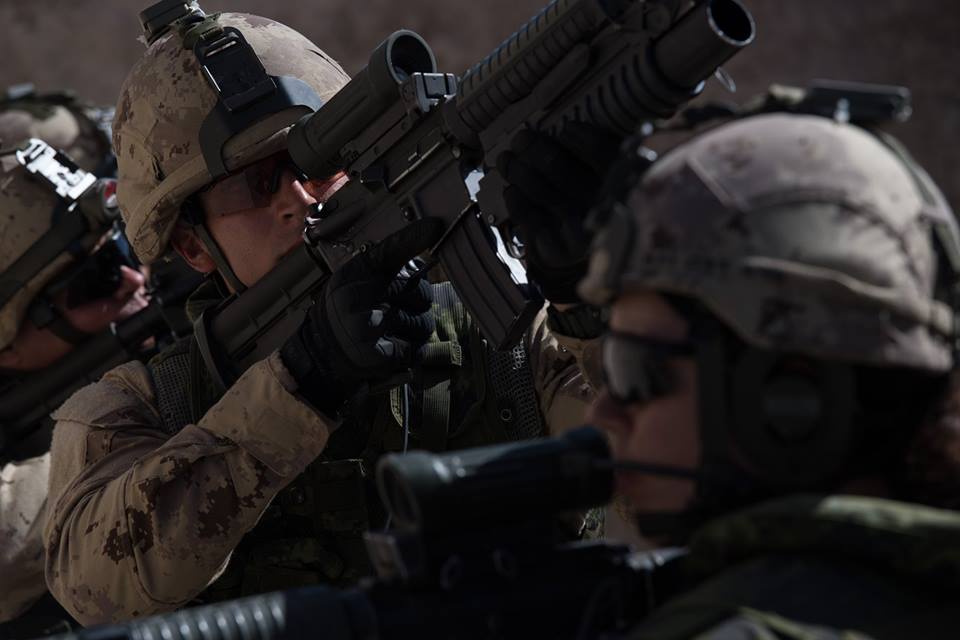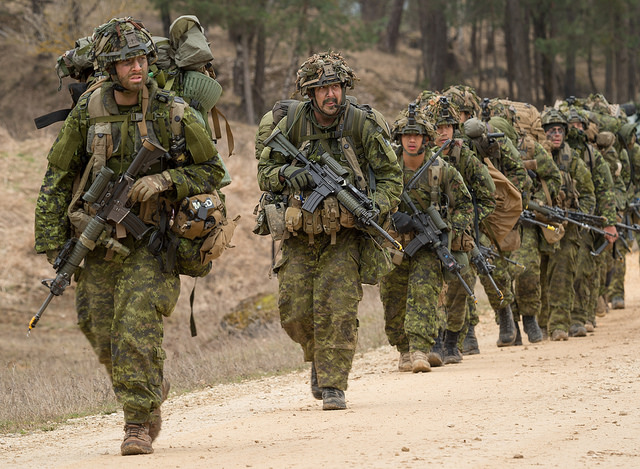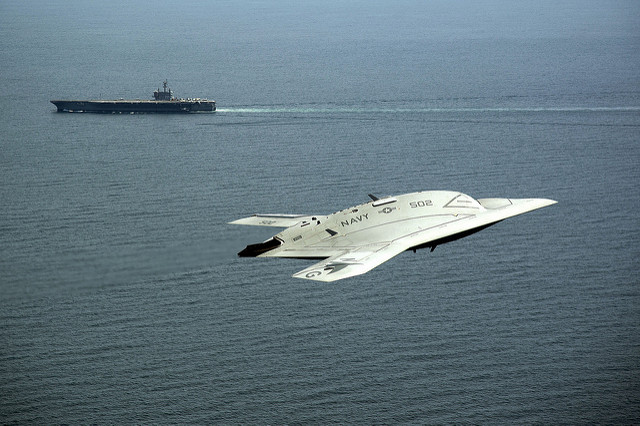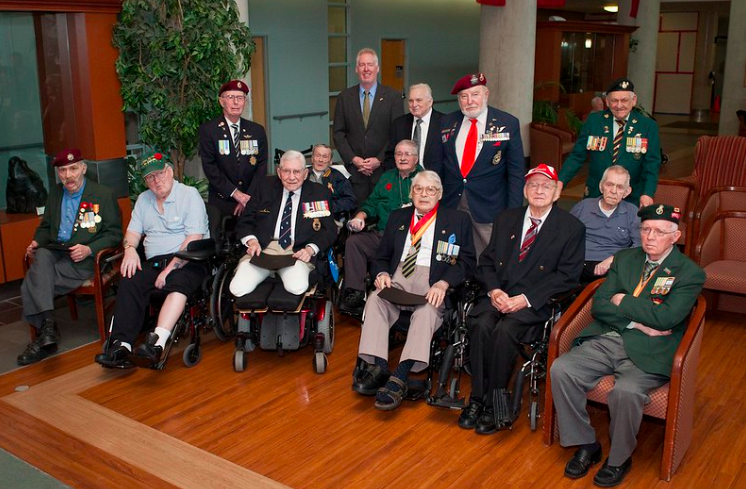After months of pressure from the opposition, the Liberal government has come around to recognizing the reality of the atrocities and genocide being committed by the Islamic State against the Yazidi religious minority in Syria and Iraq. But mere recognition is not enough. Nor will ‘sunny way’ policies to combat the reign of ISIS be effective.
In the past, governments have deliberated and delayed intervention until it was too late. Once again, Canada is doing too little too late. The challenge is that in order to stop atrocities, the state must act on the perception of intent, rather than evidence of action.
Recognizing genocide after it has happened is one thing, but taking necessary action to prevent its occurrence is even more important. For this reason, past Liberal governments have played a role in supporting and implementing the “Responsibility to Protect” (R2P) doctrine, which is a global commitment by states to be more proactive in stopping genocide, war crimes, crimes against humanity, and ethnic cleansing. When a state fails to protect its own people, then it is the responsibility of the international order to act.
Yet, as ISIS wages Jihad and Bashar Al-Assad continues to perpetuate crimes against humanity, the Liberal government fails to observe the lessons of past genocides as it sits idle witnessing the massacre of an entire group of people. Certainly, if the mass atrocities in Syria, with 500,000 killed, 12.5 million displaced, and five million refugees are not a call to invoke R2P, then there is no R2P, and Prime Minister Trudeau’s preoccupation with ‘sunny way’ policies will give way to even darker days in Syria.
The Liberal government’s current policy for addressing the genocide within Syria is flawed, as resettling refugees from one part of the world where they already have protection within United Nations refugee camps, and in turn, neglecting resettlement of persecuted refugees with no protection, is not R2P.
ISIS is a hostile organization that exemplifies the worst possible traits of all humanity, and its sole defeat is a moral obligation of all states.
Kyle Matthews, expert on mass atrocities prevention, is concerned with Canada’s response to the unfolding genocide. Matthews states, “he does not understand the current government’s aversion to prioritizing persecuted refugees…. Many persecuted minorities in Iraq [and Syria]… in need of special protection are not considered for resettlement by the Canadian government, because they are not Syrians.” Rather, it is an utter disregard for the situation on the ground. Matthews argues “there is nothing in refugee or international law that would prevent Canada from prioritizing a targeted group that ‘deserves additional protection’ over ‘the average person in a refugee camp.’”
With world leaders and the United Nations affirming that ISIS is in fact committing genocide, there is no denying that there is an underlying cause for concern and need for military action in battling ISIS. Although there is no long-term plan for the defeat of ISIS and the stabilization of Syria, there is, however, an overwhelming consensus within the international order that suggests a need for the continuation of airstrikes carried out by the Canadian Armed Forces and the NATO Alliance against ISIS strongholds.
The maintenance of international peace and collective security depends mainly on there being a common ground of understanding, and acceptance of when the use of force by the NATO Alliance is legitimate, legal, and moral. The moral justification for maintaining containment through airstrikes throughout Iraq and Syria is clear: ISIS is a hostile organization that exemplifies the worst possible traits of all humanity, and its sole defeat is a moral obligation of all states.
Not only have airstrikes succeeded in substantially decreasing ISIS’ ability to mobilize mass numbers of reinforcements to the frontline, it has also impeded its ability to effectively govern the land that it holds. Containment of ISIS’ reign can further be achieved by building the capacity of local forces on the ground, in which offensive military action in Iraq and Syria utilize air operations in support of Iraqi and Kurdish security forces to provide reconnaissance, surveillance, and attack capabilities. However, under no circumstances should these airstrikes lead to a full-on ground occupation.
Yet, as ISIS continues to systematically target religious minorities in the Middle East and execute a ruthless campaign to destroy vulnerable groups, Canada continues to be indifferent to the plight of those facing genocide. Prime Minister Trudeau’s policy that seeks to take on a posture of ‘sunny ways’ will prove to be ineffective against an enemy that explicitly demonstrates a complete disregard for human life. Moreover, the resettlement of refugees will not stop the massacre of the Syrian people and minority groups. What is needed now is direct and deliberate force to degrade the violent grasp of ISIS.
The doctrine of R2P serves as a powerful reminder that Canada, along with the international order, cannot remain a bystander. While the state has the primary responsibility for protecting its own people from mass atrocity, the international community ultimately has a shared responsibility if the state is unable or unwilling to fulfill its obligation. And it is evident that the state of Syria is both unable and unwilling to do so.
Thus, as a signatory of the Genocide Convention, Canada undoubtedly has a fundamental responsibility to take the battle to ISIS. Not only is this the necessary course of action, but it would position Canada as deserving a seat on the UN Security Council for taking a firmer stance against violent non-state actors that pose an existential threat to the peace, prosperity, and security of the international order.
Photo: Soldiers from the Non-Combatant Evacuation Operation group of the 2e Batailon Royal 22e Regiment, conduct military operations in urban terrain training during RIMPAC 2016 at Camp Pendleton in San Diego, United States (2016), by Sgt Marc-Andre Gaudreault via Combat Camera. Licensed under CC VL08-2016-0020-018.
Disclaimer: Any views or opinions expressed in articles are solely those of the authors and do not necessarily represent the views of the NATO Association of Canada.




